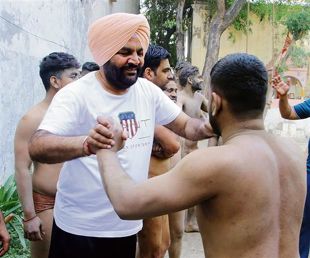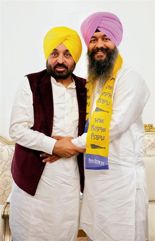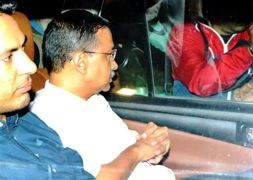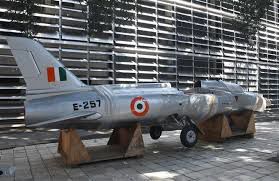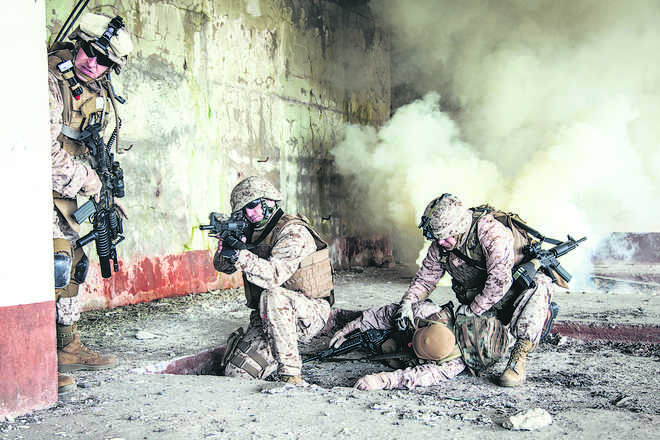
Horror of War War brings nothing but misery. istock
Sehdev Kumar
Professor Emeritus in Canada.He has relocated to India and made Auroville his home
A hundred years ago, in 1915, as the 'Great War' was raging amongst the 'civilised' nations of the world, a Canadian lyricist, Alfred Bryan, wrote one of the earliest anti-war songs, 'A Mother's Plea for Peace':
Ten million soldiers to the war have gone,
Who may never return again.
Ten million mothers' hearts must break
For the ones who died in vain.
I heard a mother murmur through her tears:
"I didn't raise my boy to be a soldier,
I brought him up to be my pride and joy."
There'd be no war today if mothers all would say:
"I didn't raise my boy to be a soldier…..
Of course, millions of mothers' boys, including more than 1.2 million from India on behalf of the British Empire, went to the First World War and died in vain. In 1918, when the war finally came to a bitter and devastating end, more than 10 million young boys and men had died, and over 40 million had been wounded, or had been shell-shocked into frenzy and suicide.
"In the end," an Indian soldier with both legs missing, wrote home, "no one had won, nor could win the War. The War itself had won."
The pain that war brings
Only those who have never fought in a war glorify it; for others who have experienced its brutalities and barbarism -- whether at Somme or at Verdun, or in Vietnam or in Korea or in Russia or in Bangladesh -- it is the devil's paw and hell on earth.
In the Great War, a war that was meant to end all wars, 35 per cent of all German men between the ages of 19 and 22 perished; 50 per cent of all French men between 22 and 32 died, 31 per cent, almost one-third, of the entire graduating class of 1913 from Oxford University perished. More than 74,000 Indians died defending the freedom of their Masters in lands they had never seen or even heard of before.
One could ask: What was it like fighting against an enemy whose face was unknown, whose weapons were unheard of, and whose bravery was laced with poison gas canisters?
Ten years after the war was finally over, a young German soldier, Erich Maria Remarque, wrote a book that set out to answer the question in a very personal way: What was it like for a young man of 18 to be fighting a war in trenches, engulfed in poisonous gases, steeped in filth and misery and death all around, to be driven to morbid fear and mortifying frenzy, and yet forced to appear and act brave, all in the name of freedom and honour?
The book was All Quiet on the Western Front. This remarkable book — later made into an equally remarkable film — celebrated not the heroes or the generals of war, or the false bravado of courage and bravery in the battlefields, but the crippling, seething, mortifying fears and the stultifying mindlessness of destruction and devastation of life.
The book spoke of the mangled flesh of young boys who had never witnessed an open wound before; of young men suffocating in their gas masks, for they knew not how to put them on; of times, in the midst of barrage of rockets, when it was difficult to know if it was morning or evening; of parched thirst and of corroding hunger; of horses, with their bellies ripped open, their guts trailing out, tangled in barbed wires, whining, crying, moaning.
"It's unendurable. It is the moaning of the world, it is the martyred creation, wild with anguish, filled with terror, and groaning."
In the face of artillery, tanks, barbed wire, trenches, poison gases, where does life — any life — hide? Where and how does it survive?
These young men were required to sacrifice their lives for freedom; they were exhorted to kill and destroy others to preserve freedom. Whose freedom? What freedom?
The army, as the book describes in painful and horrid details, is structured to destroy any notion of freedom in the heads of its 'fighting-animals'.
"A declaration of war," a young soldier proposes, "should be a kind of popular festival with entrance tickets and bands, like a bull fight. Then in the arena the ministers and the general of the two countries, dressed in bathing-drawers and armed with clubs, can have it among themselves. Whoever survives his country wins. That would be much simpler and more just than this arrangement, where the wrong people do the fighting."
This book was published in 1928 in Germany; with the rise of Nazism, its description of the absurdity and the misery of war, created a revulsion against the book and its author. It made the 'brave German soldiers', many protested, look like 'wimps' and cowardly; it brought shame to the great German people and tarnished their glorious image.
The book was condemned, banned and burnt.
That is the story of anyone who has challenged the nationalistic or religious jingoism of any warmonger. But finding all possible ways to create peace is, in my view, the noblest expression of bravery.





















